For many it will bring chills, but for Balochistan flood victims winter will be a misery
4 min readAt a time when people are putting on their warm clothes to enjoy the new season, winter, many in Balochistan’s Dera Bugti and Jaffarabad are still living under the open sky after rains triggered floods pummeled their houses and cash crops. Trying to adjust their families in hovels, they have only one demand from the government: help.
“Because of the recent rain… I had three rooms [of the house]… of which condition is in front of you. I am also the khateeb of the mosque and I cannot make my ends meet with an amount of Rs4,000 to Rs5,000,” Allah Baksh Bugti, the Pesh Imam of Jamia Masjid Ya Rasul Ullah, said.
His house in the Juez Colony area of Sui Tehsil is without roofs, walls have crumbled and all left is debris. A door is there but it leads to rubble and remains of the material that a house is made of in Balochistan.
Baksh along with his two sons is now living in a place, which is covered by a wall from two sides and by old pieces of tarpaulin from the other two sides. It has no door. The ceiling is made of long bamboo and twigs joined by a piece of cloth.

“Please pay attention amid this inflation. How I should live. I need help for all these [house collapse] expenses so that I can live easily and peacefully and can remember you all in prayers,” he said and urged appealed the provincial and federal governments to support him.
Rains led by floods since mid-June have displaced as many as 33 million people in Pakistan, with Balochistan being the worst affected province after Sindh. The deluge has killed at least 336 people in the province and injured 187.
More than five billion rupees have so far been disbursed among over two hundred thousand beneficiaries, said the National Flood Response Coordination Centre website.
The plight of many flood victims in Jaffarabad and Sohbatpur is almost the same. They complain that no official from the government or local administration has come to help them recover from it.
“We have shifted from here to Mori, also known as Sherwa Mori. We are sitting there without any help. We are about 35 to 40 families,” said one of the flood affected people.
Thousands of people are living without any shelter or belongings in Jaffarabad, as the winter season begins in the area. Many people allege that the government has so far not provided the Rs25,000 cash amount to the families.
More than 100,000 people have fallen ill in Jafarabad, Naseerabad, Dera Bugti, Sohabatpur, Lasbela, and Dera Bugti because of infectious diseases, according to the report of the Health Department. The epidemic breakdown is as follows:

‘Rehabilitation is a big challenge’
“Right now, rehabilitation is a big challenge,” Shoaib Hashmi, the media coordinator of Alkhidmat Foundation, said in response to an Aaj News query via a telephone call.
Alkhidmat Foundation, one of the leading relief organisations in the wake of floods, has started rehabilitation work in 12 flood-hit districts across the country.
Hashmi told this scribe that the organisation followed three-step measures in dealing with the situation arising after floods: rescue, relief, and rehabilitation.
It started running mobile water filtration plants and mobile medical health services after rescuing people from the flood affected areas.
“The mobile health especially covers maternal and infant health,” he said in view of the United Nations Population Fund report released in August. It said that at least 650,000 pregnant women, of whom 73,000 are expected to deliver in September, in the flood-affected areas are in dire need of maternal health services.

Alkhidmat Foundation is running many mini-hospitals in six zones and 12 field hospitals. Hashmi added that his organisation is also coordinating with other NGOs and the government in the registration of pregnant women.
The construction of houses is also under way in Balochistan. “We are providing housing material to the people with an aim towards community involvement. This is a slow process as awareness takes time.
He is of the view that the situation is better than the past two to three months when most of the roads leading to flood-hit areas were not clear. But, still, there are some districts where the delivery of items is taking time, like the track from Dadu to Shahbaz Qalandar in Sindh.
“We have provided more than 60,000 tents and tarpaulin to the people,” he said, “we will also provide a winter package, a general programme, that includes warm clothes, beds, and quilt.”
Hashmi said that his organisation has launched a Kisan package to avert the impending wheat crisis in the country. Farmers with less than one to five acres of land are being provided seeds, fertilizers and pesticides. Moreover, a team of 25 farmers led by a consultant has also been made to support the next crop season.
For the latest news, follow us on Twitter @Aaj_Urdu. We are also on Facebook, Instagram and YouTube.





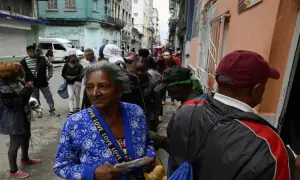

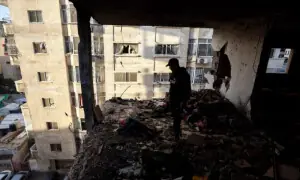






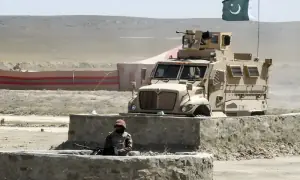
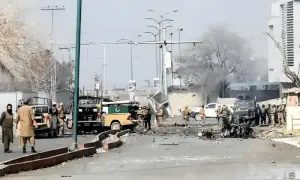
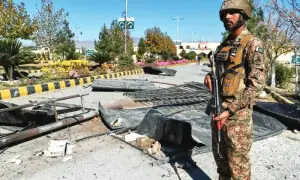
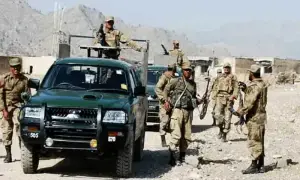


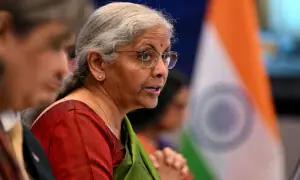

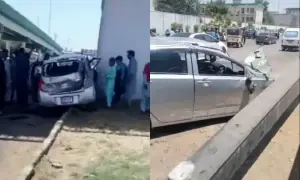

Comments are closed on this story.